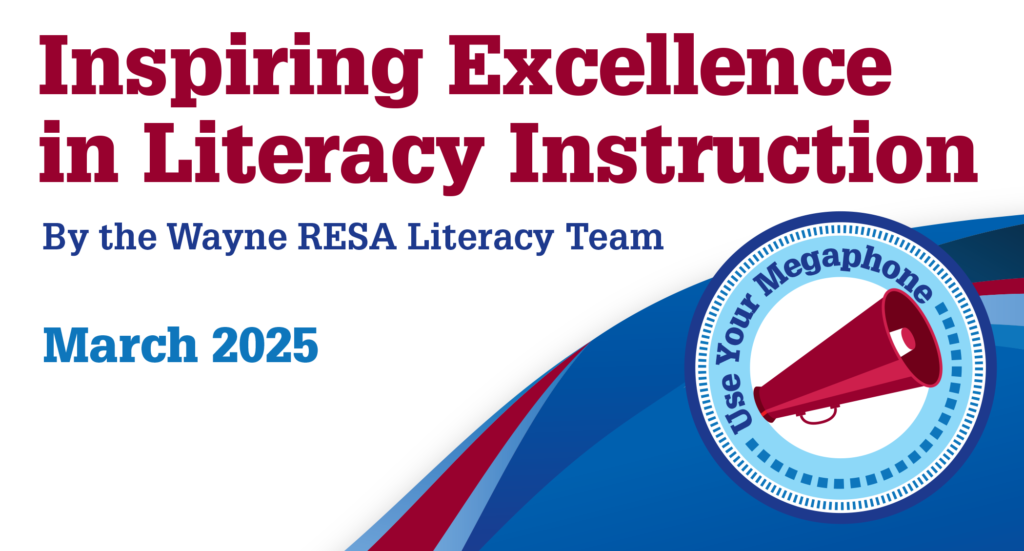
This newsletter has been created by Wayne RESA literacy consultants for literacy educators. In each issue, you will find Literacy Learning Network updates and information, statewide initiative updates, book synopses, teaching and coaching strategies, and upcoming professional learning opportunities. We look forward to partnering with you as we engage in best practices in literacy instruction for all students.
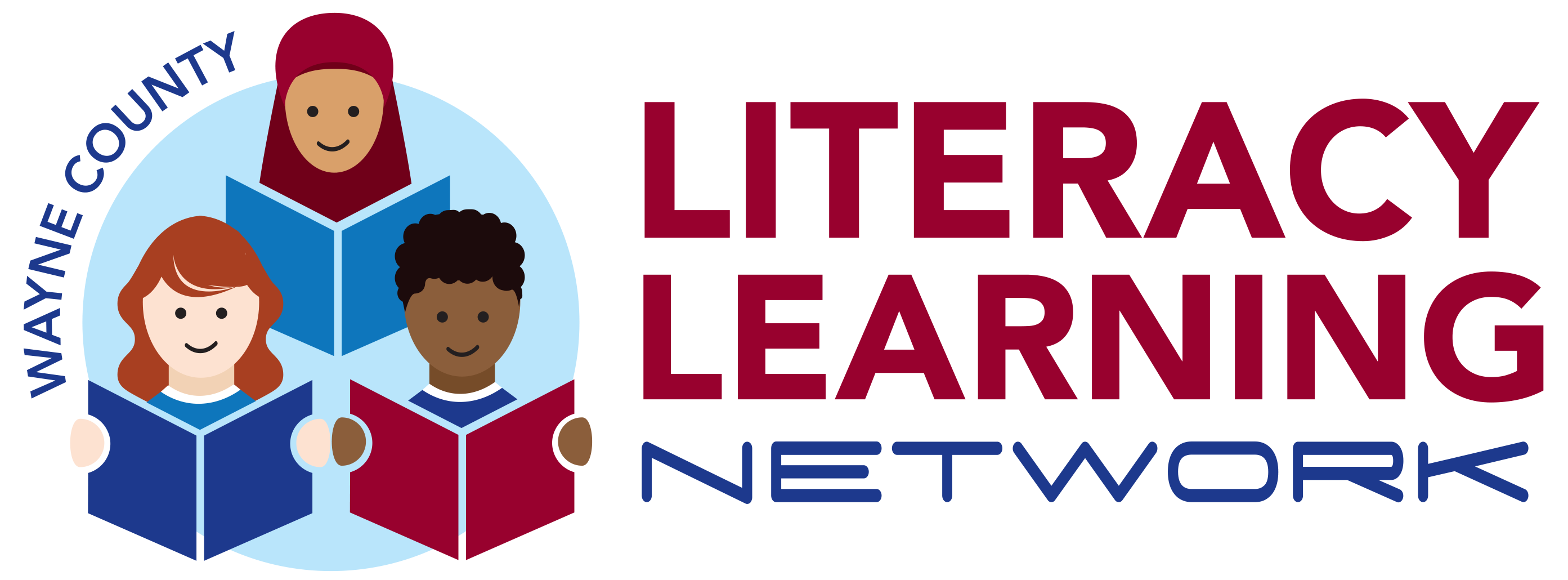
Literacy Learning Network
Updates
MRA Administrator
of the Year
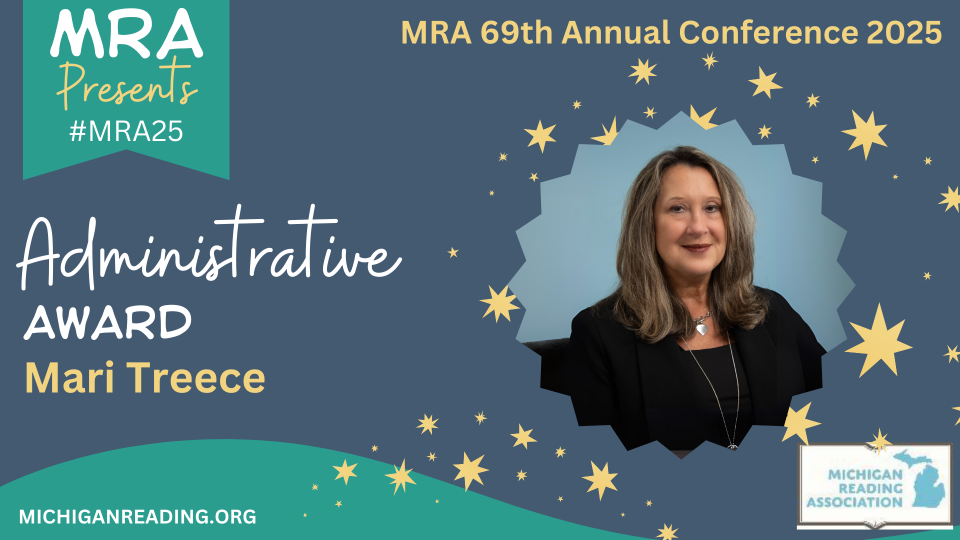
Congratulations to Mari Treece, Executive Director of Educational Services at Wayne RESA, on being named the 2025 Michigan Reading Association Administrator of the Year! Mari’s leadership has been instrumental in transforming literacy support across Wayne County. She spearheaded the creation of the Wayne County Literacy Learning Network (LLN) and led the development of the Wayne County Coaching System, establishing a sustainable, research-based approach to professional learning for coaches and the teachers they support. She has built a countywide infrastructure for literacy improvement through her strategic vision, empowering educators and driving measurable student success. Please join us in congratulating Mari for her enduring and inspiring leadership!
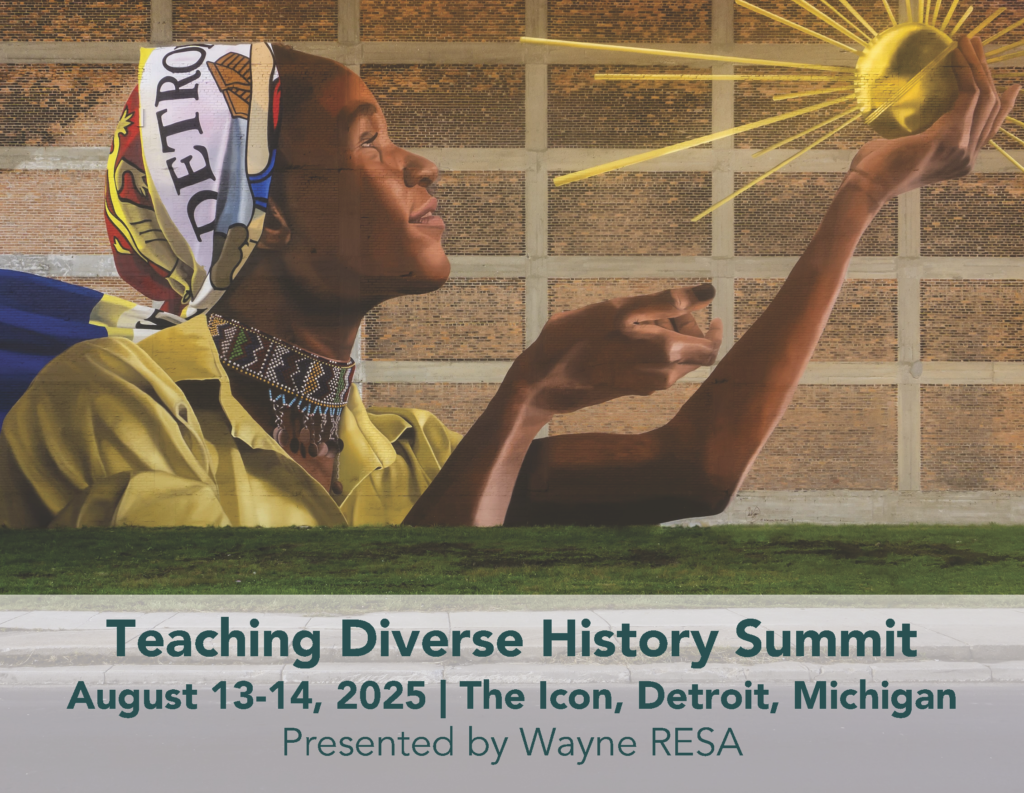
Teaching
Diverse History
Summit
Wayne RESA, in partnership with Westwood Community School District, invites all Michigan teachers and pre-service teachers to the first Wayne County Teaching Diverse Histories Summit. The theme of this year’s Summit – Lifting Untold Stories: Pedagogies and Practices for Teaching a People’s History of Wayne County – will support teachers and leaders in growing their knowledge of the stories that shaped Wayne County and the pedagogical moves to bring these stories to life with students. It will bring together participants from across the state and presenters from Michigan and beyond for two days, free of cost, of high-quality professional learning based on principles from culturally responsive, inquiry-based, and place-based pedagogy. Highlights include:
- Keynote speaker Dr. Hasan Kwame Jeffries
- Youth panel on the importance of teaching untold stories
- Dynamic breakout sessions
- Connections with local organizations
- Place-based workshops and tours
- SCECHs, books, teaching materials, and lunch
For more information and links to registration, please see the Diverse Histories webpage. We look forward to seeing you in August!
Storybook Trail
Over the summer, Science Consultant Rich Bacolor proposed a plan to create a permanent and accessible STEM and literacy resource for neighborhood families: a Storybook Trail. Rich chose Attwood Park, just around the corner from Wayne RESA’s main campus, as the site. Inspired by the success of storybook walks at various Wayne RESA-led professional learning events, he knew that such a path would promote the 3P framework, which includes student-centered learning through project-based, place-based, and problem-based lessons. Additionally, the path would offer students and their families an opportunity to engage in STEM and literacy-focused activities as they spent time together outdoors. This collaborative effort between the City of Wayne and Wayne RESA launched in November with the book Tidy, a lovely story about an overzealous badger who takes leaf clean-up a little too far. A new, seasonally appropriate book is installed every month, and a copy of each book is available for check out at the library. As our Michigan winter transitions to spring, residents can read Branches while enjoying warmer and sunnier days. We encourage you to stop by the park on your next walk and have a look!
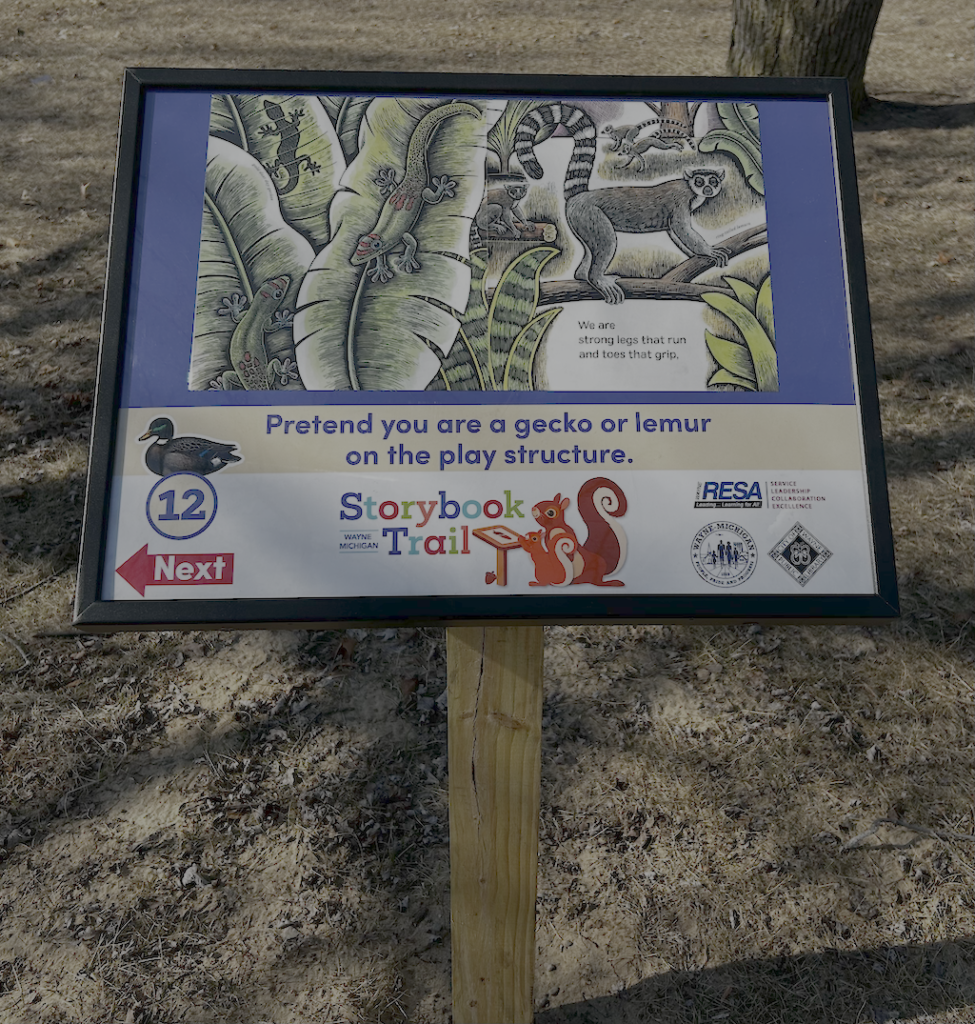

Coaching Connections
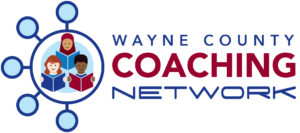
SAVE THE DATES, COSAs!
Please save the following dates; these dates are also posted on the Google calendar on our COSA site. If you are having trouble accessing the site, please contact Laura Gabrion.
- September 4: COSA Welcome Back Meeting
- September 16-18: New Coaches’ Kick-Off Institute
- October 7: New COSAs’ Meeting
- October 14: ISD Early Literacy Coaches Quarterly Meeting
- December 9: ISD Early Literacy Coaches Quarterly Meeting
- February 10: ISD Early Literacy Coaches Quarterly Meeting
- May 5: ISD Early Literacy Coaches Quarterly Meeting
SAVE THE DATES, WAYNE COUNTY COACHES!
Registration is now open for the 2025-2026 Wayne County Instructional Coaching Network! These dates are also posted on the Google calendar on our Coaching Network site. If you are having trouble accessing the site, please contact Laura Gabrion.
- September 11: Wayne County Instructional Coaching Network Meeting
- November 13: Wayne County Instructional Coaching Network Meeting
- January 15: Wayne County Instructional Coaching Network Meeting
- March 5: Wayne County Instructional Coaching Network Meeting
- May 21: Wayne County Instructional Coaching Network Meeting
Five Myths About Teacher Professional Learning by Jim Knight
In a March 1, 2025, article for ASCD titled “Five Myths About Teacher Professional Learning,” Jim Knight, drawing on 25 years of experience in professional development, identifies five persistent myths that hinder effective teacher learning and real change in schools.
- Misconception 1: Workshops Alone Drive Change – While workshops raise awareness, they rarely lead to sustained change. Without follow-up support like coaching, most strategies fail to be implemented effectively.
- Misconception 2: Teachers Resist Change – Teachers don’t resist change itself; they resist changes they don’t see as valuable or feasible. Aligning professional learning with teachers’ needs fosters real engagement.
- Misconception 3: Externally Set Goals Motivate Teachers – Teachers are more committed to goals they help create. Top-down mandates often lead to compliance rather than meaningful professional growth.
- Misconception 4: Coaches and Leaders Don’t Need Deep Knowledge of Strategies – Without a clear, in-depth understanding of instructional strategies, coaches and leaders struggle to support teachers effectively. Tools like instructional playbooks help bridge this gap.
- Misconception 5: Fidelity to Proven Strategies Ensures Success – Teaching should focus on student outcomes rather than rigid adherence to prescribed strategies. Adapting methods to meet students’ needs is key to real improvement.
Knight emphasizes that effective professional learning should be teacher-driven, deeply informed, and student-focused. By challenging these myths, schools can create a culture where educators feel empowered to make meaningful, lasting changes.
Statewide Updates

- March 19, 2025: Mr. Deon Butler; The Dyslexic King
- March 27, 2025: MDE Dyslexia Handbook, Part 1
- April 3, 2025: MDE Dyslexia Handbook, Part 2
Please watch for more information on the upcoming May 15, 2025, and June 26, 2025, webinars.







- Stop and Ponder poster
- Building the Reading Brain video
- Building the Reading Brain panel discussion
- Windows and Mirrors: Building the Reading Brain video

Books and Strategies
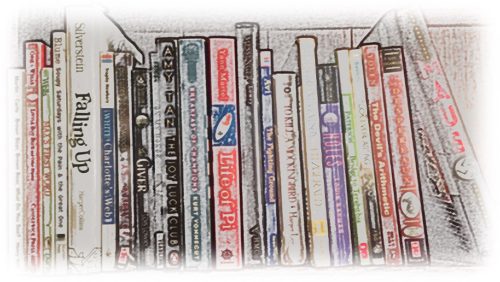
Book Talk
Igniting Passion in Readers of All Ages
Nana Akua Goes to School
Tricia Elam Walker, illustrated by April Harrison
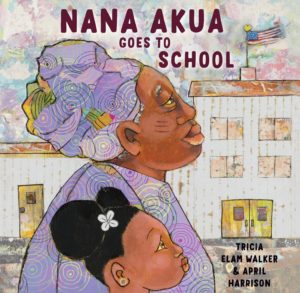 In this Ezra Jack Keats Award-winning book, Zura begins to fret when her teacher reminds the class about Grandparents’ Day. Her classmates’ excitement about bringing their amazing grandparents to school only worries her more. At home, the source of Zura’s worry becomes clear. Her grandmother wears traditional Ghana carvings on her face, and Zura worries that her classmates will make fun of them. Her clever Nana, though, has a plan that will not only educate the students in Mr. Dawson’s class, but it will also build their interest and excitement in Adinkra symbols and their meanings.
In this Ezra Jack Keats Award-winning book, Zura begins to fret when her teacher reminds the class about Grandparents’ Day. Her classmates’ excitement about bringing their amazing grandparents to school only worries her more. At home, the source of Zura’s worry becomes clear. Her grandmother wears traditional Ghana carvings on her face, and Zura worries that her classmates will make fun of them. Her clever Nana, though, has a plan that will not only educate the students in Mr. Dawson’s class, but it will also build their interest and excitement in Adinkra symbols and their meanings.
The First State of Being
Erin Entrada Kelly
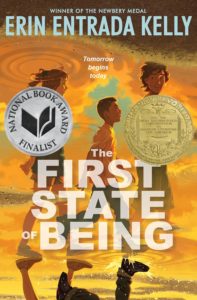
Twelve-year-old Michael Rosario’s life in 1999 Delaware is predictable—until he meets Ridge, a confident and carefree teen who claims to be the world’s first time traveler. As Ridge explores the past, Michael becomes fixated on his friend’s book, which reveals events from the next twenty years. Determined to secure his future, Michael faces a difficult choice: how far will he go to get the answers he craves? Winner of the 2025 Newbery Medal and a National Book Award finalist, The First State of Being is a compelling story of time travel, friendship, and self-discovery from acclaimed author Erin Entrada Kelly.
Buffalo Dreamer
Violet Duncan

Buffalo Dreamer is a powerful novel about reclaiming the past and honoring cultural identity. Every summer, Summer and her family visit their reservation in Alberta, Canada, but this year is different. She begins having vivid dreams of escaping a residential school—dreams that feel eerily real. When unmarked graves are discovered at the school her grandfather once attended, long-buried stories come to light, including his own painful past. As her community rallies to acknowledge the truth, Summer embraces her heritage, determined to honor those who came before her and uncover the meaning behind her dreams. A National Book Award Finalist, Buffalo Dreamer is a moving story of history, healing, and the resilience of Native families.
What the Fireflies Knew
Kai Harris
 In her debut novel, author Kai Harris crafts the intricate story of ten-year-old Kenyatta Bernice, known affectionately by family and friends as KB. After her father’s untimely and tragic death, KB and her sister Nia are uprooted twice from their family home in Detroit, ultimately moving to Lansing to live with their surly and unaffectionate grandfather. While their mom works to overcome her own depression, the sisters grapple with grief, injustice, and abandonment as they are forced to grow up quickly in an unfamiliar and, at times, uninviting place. Named a Most Anticipated Book of 2022, Harris does not disappoint her readers with this gripping story of tragedy and triumph.
In her debut novel, author Kai Harris crafts the intricate story of ten-year-old Kenyatta Bernice, known affectionately by family and friends as KB. After her father’s untimely and tragic death, KB and her sister Nia are uprooted twice from their family home in Detroit, ultimately moving to Lansing to live with their surly and unaffectionate grandfather. While their mom works to overcome her own depression, the sisters grapple with grief, injustice, and abandonment as they are forced to grow up quickly in an unfamiliar and, at times, uninviting place. Named a Most Anticipated Book of 2022, Harris does not disappoint her readers with this gripping story of tragedy and triumph.
Textured Teaching: A Framework for Culturally Sustaining Practices
Lorena Escoto Germán
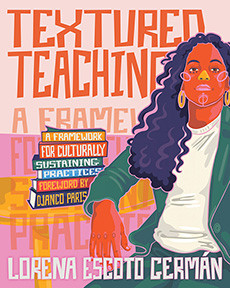 Lorena Escoto Germán, accomplished educator and author, also cofounded two influential groups: #DisruptTexts and Multicultural Classroom. In this book, she compares teaching to “woven fabric”; like the “underside” of these fabric creations, teaching can be “chaotic and messy.” What we see when we look at such creations, though, is not the backside but the gorgeous, textured front. To craft our own textured teaching practices, Germán provides us with supporting research, ideas, and strategies for the four textured teaching traits – student-driven and community-centered, interdisciplinary, experiential, and flexible – informed by her teaching as social justice equation: love and community + justice + truth and knowledge.
Lorena Escoto Germán, accomplished educator and author, also cofounded two influential groups: #DisruptTexts and Multicultural Classroom. In this book, she compares teaching to “woven fabric”; like the “underside” of these fabric creations, teaching can be “chaotic and messy.” What we see when we look at such creations, though, is not the backside but the gorgeous, textured front. To craft our own textured teaching practices, Germán provides us with supporting research, ideas, and strategies for the four textured teaching traits – student-driven and community-centered, interdisciplinary, experiential, and flexible – informed by her teaching as social justice equation: love and community + justice + truth and knowledge.
The Anxious Generation: How the Great Rewiring of Childhood Is Causing an Epidemic of Mental Illness
Jonathan Haidt
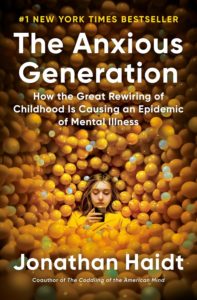 Psychologist and author Jonathan Haidt has spent years collecting evidence to support an alarming and increasing mental health epidemic among youth. One causal factor, in his assessment, is the decline in active play, concurrent with an increase in the use of screens. His book urges us to reverse this trend in an effort to restore the mental and emotional health of our children and teens, and he offers a few steps that families, educators, and legislators can take to bring curiosity, creativity, and wonder back into the lives of children. Beyond reading this book, if you are interested in exploring maker-centered tools and collaborating with maker-minded educators, join us at the Wayne RESA Maker-STEM Summit!
Psychologist and author Jonathan Haidt has spent years collecting evidence to support an alarming and increasing mental health epidemic among youth. One causal factor, in his assessment, is the decline in active play, concurrent with an increase in the use of screens. His book urges us to reverse this trend in an effort to restore the mental and emotional health of our children and teens, and he offers a few steps that families, educators, and legislators can take to bring curiosity, creativity, and wonder back into the lives of children. Beyond reading this book, if you are interested in exploring maker-centered tools and collaborating with maker-minded educators, join us at the Wayne RESA Maker-STEM Summit!
Noteworthy News
The Michigan Department of Education has compiled a document with various businesses throughout the state that offer educator discounts, including retail, insurance, automotive, teacher supplies, travel, entertainment, and more. Check them out and start saving now!


If you are an Educator of Color who (a) currently teaches literacy and/or English language arts in a Michigan school and (b) is in the first five years of teaching, you are invited to apply for MCTE’s 2025-2026 pilot Early Career Educator of Color Award program. Benefits include mentoring and coaching; registration, lodging, meals, and mileage for three MCTE conferences; three (3) graduate credit hours towards the Literacy Studies MA program at Grand Valley State University; and more! Applications are due on April 7, 2025. Apply today!
Professional Learning
| Upcoming Events at Wayne RESA |
See our interactive 2024-2025 Wayne RESA Course Catalog for links to course offerings, their descriptions, and online registration in Learning Stream. Simply click on the catalog link above, and then click on Literacy in the Table of Contents to peruse our offerings. Don’t forget to check for interdisciplinary offerings by clicking on additional content areas. Our professional learning events are offered in face-to-face, hybrid, and virtual formats. If the format for a session or series is unclear, please contact any member of the Literacy Team for details. 🌷Be sure to check out our spring professional learning opportunities!🌷 |
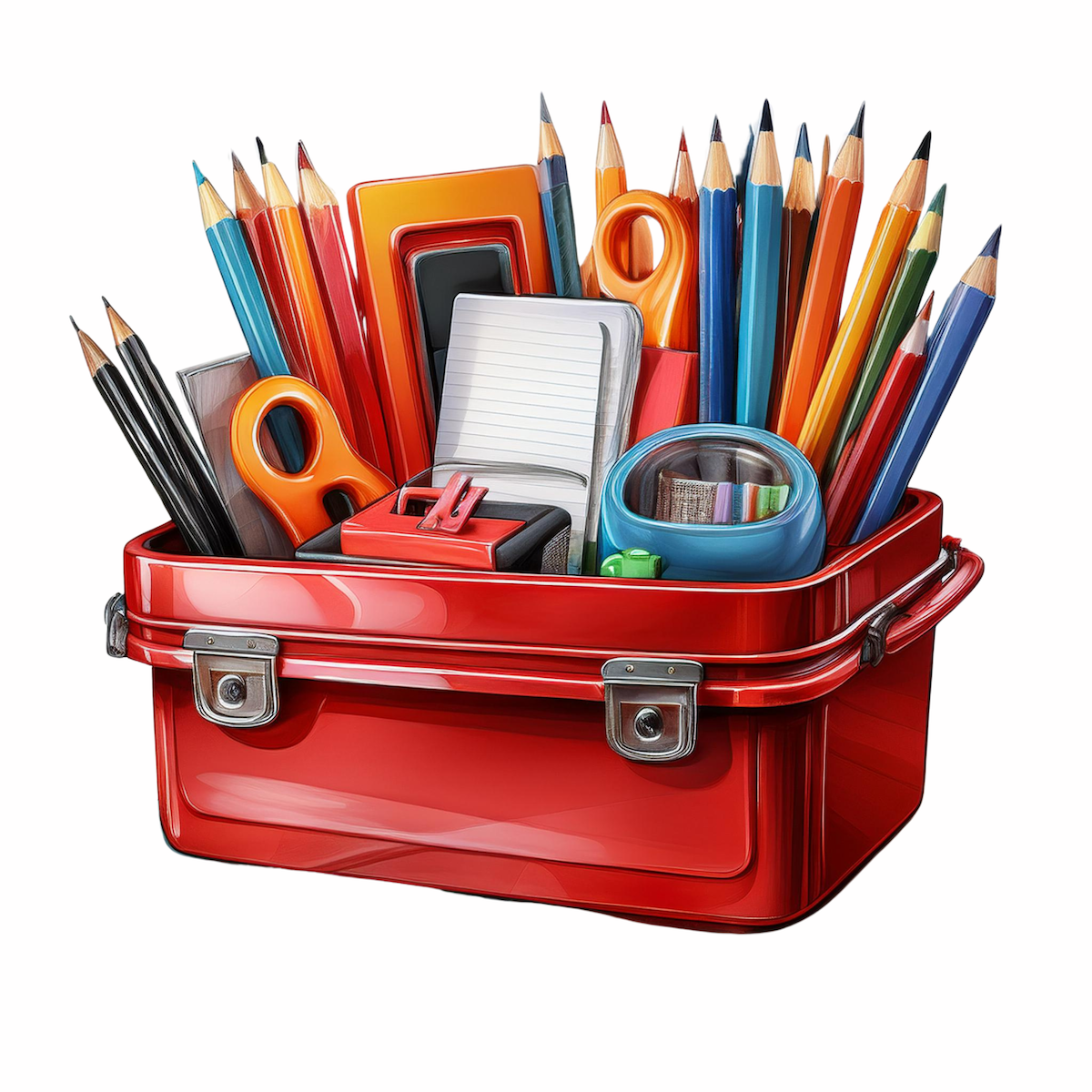
Tools to Make Your Teaching Life Easier
CommonLit is a robust literacy program for students in grades 3-12; it offers reading lessons, an EdReports highly-rated English Language Arts curriculum, and assessments, amongst other resources. The freemium platform includes the CommonLit Digital Library as well as the CommonLit 360 Curriculum. Users can pay for additional resources which are available at multi-year rates.
Wayne RESA Literacy Team
Michelle Wagner, Director of Educational Services
Mari Treece, Executive Director of Educational Services
If this newsletter has been forwarded to you, and you’d like to subscribe to it, please contact Laura Gabrion.
![]() 33500 Van Born Road • Wayne, MI 48184 • 734.334.1300 • 734.334.1620 fax • www.resa.net
33500 Van Born Road • Wayne, MI 48184 • 734.334.1300 • 734.334.1620 fax • www.resa.net
Board of Education
James S. Beri • Mary E. Blackmon • Danielle Funderburg • Lynda S. Jackson • James Petrie
Daveda Colbert, Ph.D., Superintendent
March 2025 “Use Your Megaphone”: Inspiring Excellence in Literacy Instruction Read More »